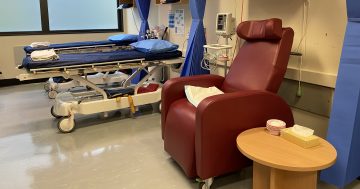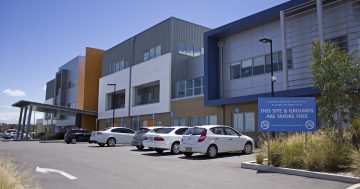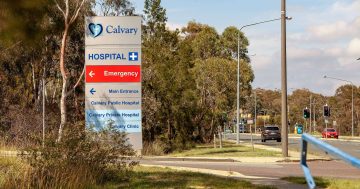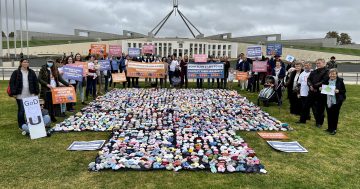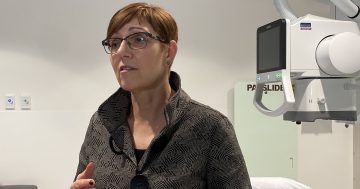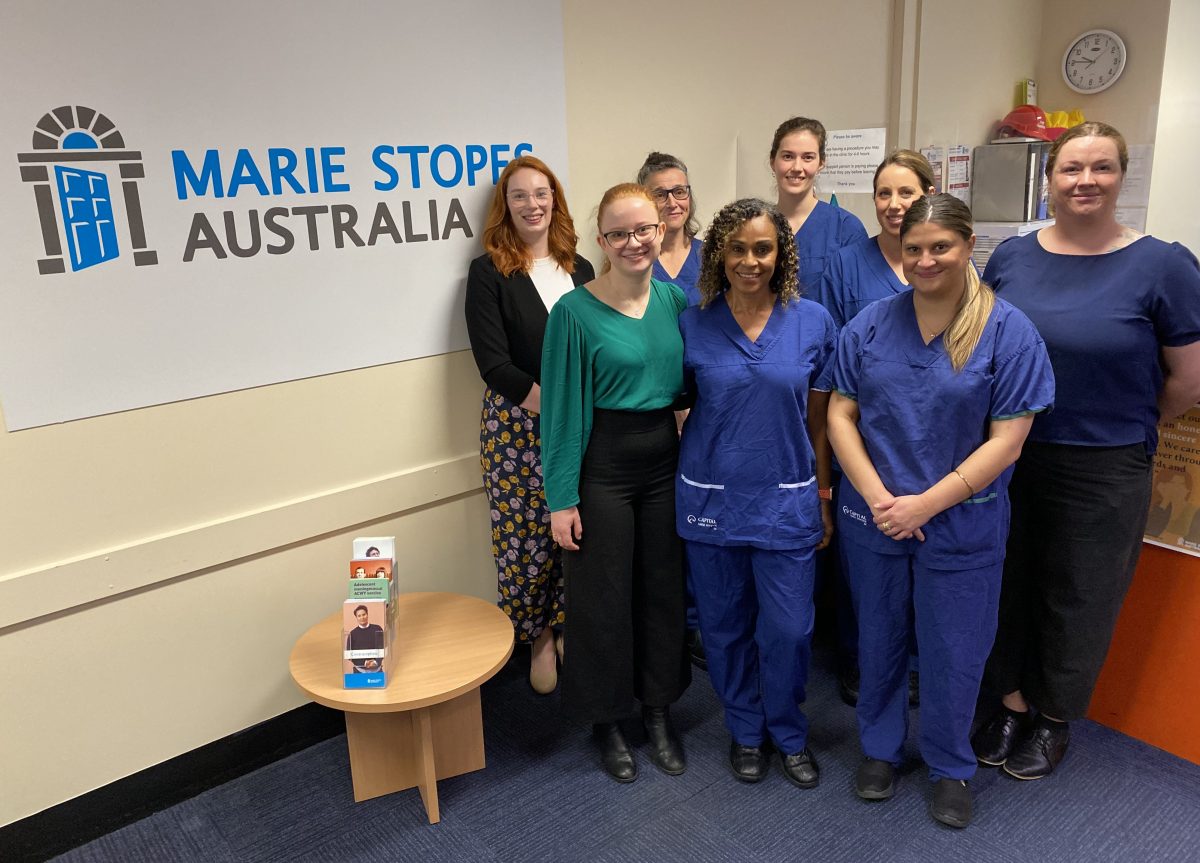
MSI Canberra staff can assist with surgical and medical abortions, which are now free up to certain gestations in the ACT. Photo: Claire Fenwicke.
The financial cost of a surgical or medical abortion will no longer be a barrier for women with unwanted pregnancies in the ACT.
Canberrans can now access free medical abortions up to nine weeks and surgical abortions up to 16 weeks at the MSI clinic in Civic.
Nurse unit manager Melissa Ryan said cost was a huge factor for many people who accessed their services.
“We often see later gestations come into the clinic because they needed time to save up money to come here in the first place,” she said.
“[Cost] is a huge burden, especially if people already have a lot of children or if they’re not working, they work part-time, and for temporary visa holders as well.”
If you have a Medicare card, a medical abortion would cost about $500 out of pocket and a surgical abortion upwards of $600.
Now they’re free, regardless of your Medicare status.
“There’s no out-of-pocket cost, there’s nothing being reimbursed or anything like that, it’s totally free,” Ms Ryan said.
People seeking abortions don’t need to do anything before making their appointment as the clinic also has bedside ultrasound services.
Clients will also be offered free access to long-acting reversible contraception (LARC) options, such as an IUD, hormonal implant or Mirena.
LARC services can be accessed at the time of a surgical abortion or within a specific timeframe after a medical abortion.
Ms Ryan said removing this barrier to abortion was essential for a person’s mental health when making this decision.
“For the clients, mental health is a huge one. We also have a lot of people coming in with severe morning sickness or debilitating fatigue, all the things that come with the first trimester of pregnancy,” she said.
“Being able to be seen sooner helps them get back on their feet and get back to their families and normal life without worrying about a pregnancy that’s unwanted.”
Free LARC options are only available to people seeking abortions; however, they are still available for a cost to other clients.
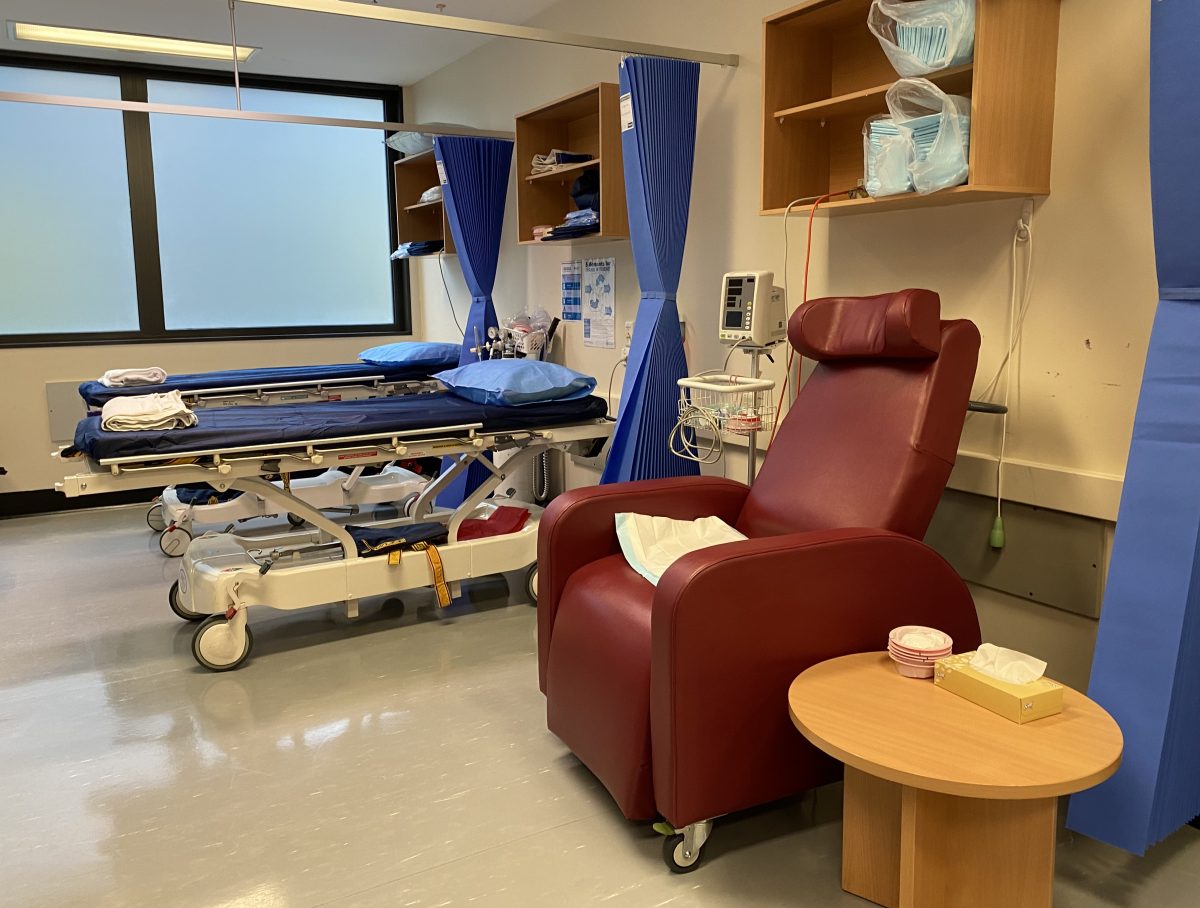
Medical abortions are available up to nine weeks and surgical abortions are available up to 16 weeks for free at the MSI Canberra clinic. Photo: Claire Fenwicke.
Health Minister Rachel Stephen-Smith said the $4.6 million commitment over four years was an election promise that isn’t capped, which means the government could examine the possibility of continuing funding past the current commitment.
“Timely access to abortion is absolutely critical for [a person’s] psychological and physical health, as well as for people’s socioeconomic wellbeing as well,” she said.
“Obviously, the financial impact of the upfront payment for a medical or surgical abortion at the moment has presented a barrier to some people who have an unwanted pregnancy and would have chosen to access an abortion.
“We don’t really know what the impact of that is going to look like, so we will wait and see what the financial impact of that looks like over time and whether we need to allocate some more funding to this service.”
While the service is only available to those living in the ACT, Ms Stephen-Smith said the government would be examining the demographics of people who accessed the MSI service to see if that condition needed to be changed.
Expanding free abortions to other providers, as well as creating easier access to information, are also being discussed.
Ms Stephen-Smith said it was important to understand abortions aren’t a luxury but a “vital, time-critical health service”.
“I think anyone who has had an unwanted pregnancy would understand that this is a critical healthcare service. This is about giving people who can become pregnant an opportunity to make their own choice about their reproductive health and whether they want to continue that pregnancy or not,” she said.
“What we are doing today is removing a significant financial barrier to accessing a critical health service.”
Abortions beyond 16 weeks aren’t currently possible in the Territory due to a lack of infrastructure and trained staff.
While conversations are being had to address this, Ms Stephen-Smith said she hoped free abortions up to 16 weeks would mean fewer people would need later-stage services.
“I think one of the key outcomes in providing abortions free of charge is that people won’t need to delay a decision to have an abortion in order to save up the money to be able to pay for it, and that is really critical in ensuring people are able to access timely care,” she said.
Access to LARC options can also help prevent people from being in the position of having an unwanted pregnancy in the future.
“One of the important things about including the availability of long-acting reversible contraception [LARC] is using that opportunity to talk to people who have an unwanted pregnancy, who are accessing abortion, about their reproductive healthcare and whether there are alternatives for them that might ensure they won’t have a future unwanted pregnancy,” Ms Stephen-Smith said.
MSI Canberra is located at 1 Moore St, Civic, and offers abortion, contraception and vasectomy services. Call 1300 867 104 or go online to make an appointment.












